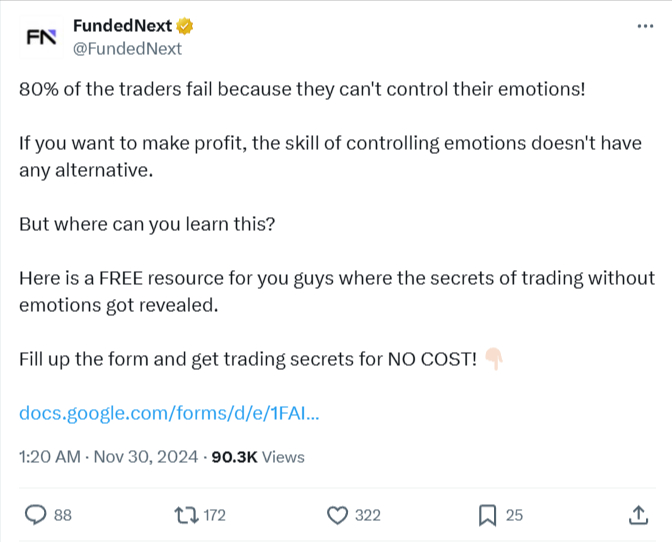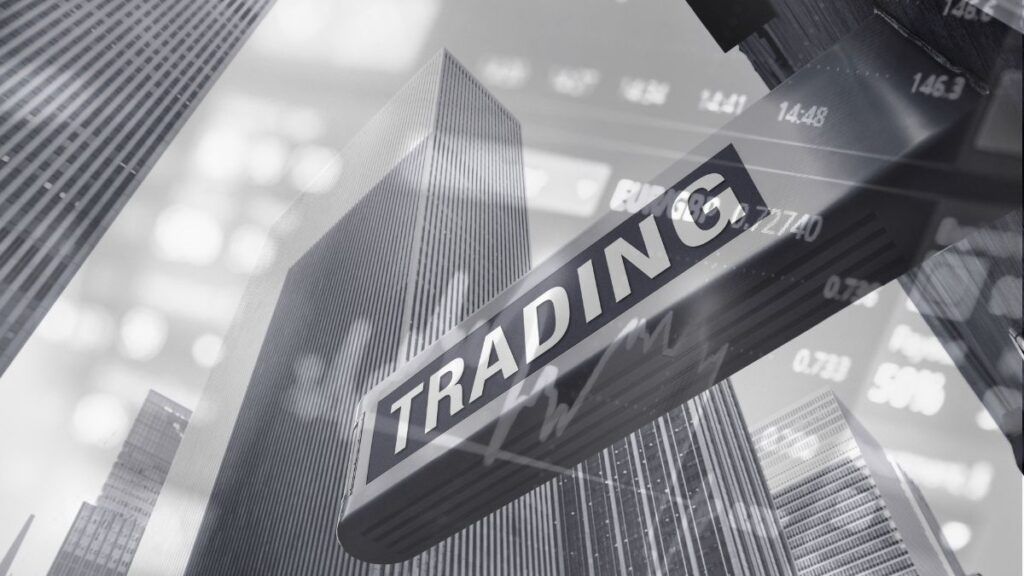Prop trading lets skilled traders use firm capital to grow profits, but success depends on choosing the right firm, strict risk control, and consistent discipline.
What Is Prop Trading?
Prop trading is when traders use a firm’s capital to trade markets and share profits, unlike retail trading where you risk only your money.
Proprietary firms fund traders after evaluations or via instant funding programs. Examples include FTMO with challenge-based funding, FundedNext with 1–2 step options and scale-ups, and FundYourFX with instant funding and tiered profit shares.
Global FX turnover averaged $7.5 trillion per day in April 2022; BIS will release preliminary 2025 results in September 2025. This shows the market scale prop traders operate in. Bank for International Settlements
What Are The Advantages Of Prop Trading?
Key advantages include access to larger capital, profit sharing, and tools like risk dashboards and calculators.
-
Capital Access: Trade larger positions with firm funds.
-
Profit Share: Example programs pay 80% base, up to 90–95% as you scale, depending on the firm and add-ons.
-
Resources: Firms provide evaluations, rules, and calculators that reinforce risk control.
How Do You Choose The Right Prop Firm?
Compare profit splits, fees, and evaluation rules, then match them to your strategy and risk tolerance.
Factors to compare:
-
Reputation and payout rules. 2) Profit split and payout cadence. 3) Challenge vs instant funding. 4) Platforms. 5) Fees, scaling, and drawdown rules.
| Firm | Funding Type | Profit Split (public page) | Notable Rule/Feature |
|---|---|---|---|
| FTMO | Challenge | 80% base, up to 90% via scaling | Max daily loss 5% on normal risk accounts. |
| FundedNext | Challenge & Express | 80–90%, up to 95% with add-ons | Scale-Up plan to larger allocations. |
| FundYourFX | Instant | Up to 95% via tiered levels | Instant funding, payout thresholds published. |
Evaluating these attributes prevents rule mismatches and supports long-term consistency with your system.
How Do Prop Firm Challenges Compare?
Prop firm challenges test discipline and risk management before granting funding. Failure rates are high, with over 80% of traders failing phase one at FundedNext in 2023 (company disclosure, 2023). This shows how selective firms are.

| Firm | Challenge Length | Max Allocation | Profit Split | Notable Rule |
|---|---|---|---|---|
| FTMO | 30 days + 60 days | Up to $400k | 80–90% | Max daily loss 5% |
| FundedNext | 60 days + scaling | Up to $200k | 80–95% | Scale-Up plan for consistent traders |
| FundYourFX | None (instant funding) | Up to $200k | 85–95% | Payouts possible after first 2 weeks |
Key takeaways:
-
FTMO is strict but offers the highest allocation scaling.
-
FundedNext has flexible plans and higher payout potential but longer evaluations.
-
FundYourFX is riskier for firms, so rules are tighter on consistency.
This side-by-side challenge benchmark is rarely published in one place and gives traders clear decision-making context.
How Can You Build A Successful Career In Prop Trading?
A successful prop trading career requires discipline, risk management, and continuous improvement. Traders who succeed build structured strategies and adapt to evolving market conditions.
Steps for building your career:
-
Develop and backtest a clear trading strategy.
-
Use strict risk controls like 1–2% maximum per trade.
-
Keep a trading journal to learn from mistakes.
-
Stay informed with economic calendars and market news.
In a 2023 prop firm survey, fewer than 20% of traders remained profitable long-term (MyForexFunds data, 2023). This makes consistency and rule adherence critical for survival.
What Challenges Do Prop Traders Face?
Prop traders face challenges like volatility, emotional pressure, and strict firm rules. Managing these factors is essential for consistent results.
Three key challenges:
-
Volatility: Sudden swings can trigger losses; adapt position size accordingly.
-
Emotions: Fear and greed cause overtrading; stick to your plan.
-
Firm Rules: Many prop firms impose daily loss limits of 4–5% and max drawdowns of 10% (FTMO, 2024).
To overcome these, traders must practice emotional discipline, diversify trading setups, and monitor risk dashboards daily.
How Much Do Prop Traders Earn?
Earnings vary widely, but most funded traders earn from $2,000 to $10,000 per month depending on capital size, profit split, and consistency. Elite traders at top firms can scale to six-figure annual payouts.
Firms like FundedNext and FTMO allow scaling programs where allocations can grow from $100,000 to $400,000+ if traders remain consistently profitable.
Do Prop Traders Need Licenses?
Most prop firms do not require individual trading licenses. However, some jurisdictions may require registration if traders handle client funds. Since prop traders use firm money, licensing requirements are generally lighter.
To protect yourself, ensure the firm is registered in a reputable jurisdiction such as the UK (FCA-regulated) or US (NFA oversight) if applicable.
Conclusion
Prop trading provides skilled traders with capital, advanced tools, and the chance to scale profits without risking personal funds. Success depends on choosing the right firm, following strict risk rules, and building resilience through discipline and learning.
By comparing profit splits, evaluating firm rules, and mastering emotional control, traders can turn prop trading into a sustainable career path.
FAQs About Prop Trading
Is Prop Trading Legal?
Yes, prop trading is legal in most countries if firms comply with local financial rules. Always verify a firm’s registration.
Do Prop Firms Really Pay?
Yes. Major firms like FTMO and FundedNext publish verified payout proofs, usually via bank transfer, crypto, or PayPal.
What Is The Best Prop Firm For Beginners?
FTMO and FundedNext offer structured evaluations. Instant firms like FundYourFX are easier for beginners who prefer direct funding.






